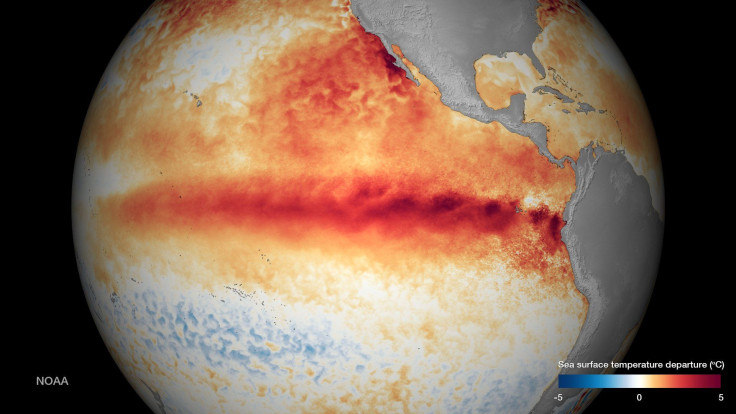2016 'very likely' to be globe’s hottest year on record

The United Kingdom’s Met Office predicts that 2016 would set a new global record as the warmest year ever recorded. New global temperature forecast shows that the combination of global warming and El Niño could drive the temperature increase that could be warmer than 2015, which has been set as the current warmest year on record.
Temperatures in 2016 could rise between 0.72°C and 0.96°C, with a central estimate of 0.84°C, higher than the 1961-1990 average of 14.0°C. This potential increase indicates that global temperatures are moving closer to 1.5°C, a level that governments agreed to keep during the recent Paris Climate Conference as a move against climate change.
The new forecast shows temperatures in 2016 would significantly be higher than 2015. The Met Office has declared 2015 with a central estimate of 0.64°C above the 1961-1990 long-term average.
"The forecast for next year is on the back of some other strong years," the BBC quoted Professor Adam Scaife of Met Office as saying. "In 2014 we had 0.6 which was nominally a record, 2015 so far we've had 0.7 which is also nominally a record, and next year we are talking about 0.8 - so you can see that very rapid rise over three years and by the end of 2016 we may be looking at three record years in a row."
The Guardian reports that the increased global temperatures in recent years have led some regions to suffer from heatwaves, including China, Russia, Australia, the Middle East and parts of South America. Estimates also show that about 40 percent of recent floods in parts of England might have been caused by climate change.
The Met Office considered the combination of man-made global warming and El Niño for the forecast for 2016. It predicts that El Niño could be responsible for up to 0.2°C of the coming year’s temperature increase, which, in combination with climate change, would lead to new records.
However, the Met Office noted that the increase in temperatures in 2016 may not continue indefinitely, falling about one degree over the coming years. Smaller natural fluctuations could affect the increasing warming signal in unpredictable ways to cause "unprecedented events” though.
"It's when the natural variability rides on top of the climate change and gives us something we have not seen before," Scaife said.
Contact the writer at feedback@ibtimes.com.au or tell us what you think below.






